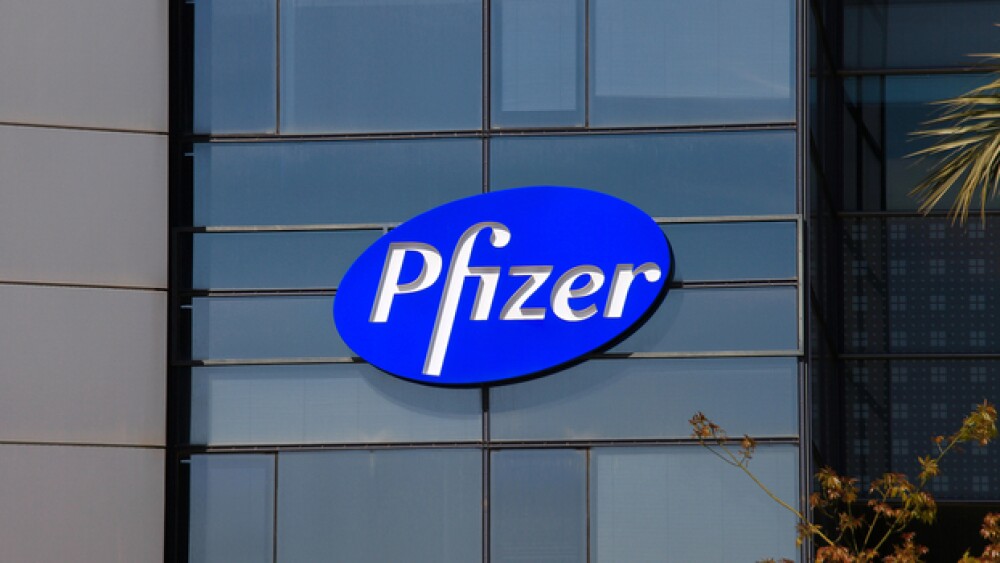Under the terms of the agreement, Pfizer will combine its consumer healthcare business with GSK’s existing consumer healthcare business. The combined global sales were about $12.7 billion last year. Closing is expected in the second half of 2019, dependent on GSK’s shareholder approval and regulatory approvals.
StockStudio / Shutterstock.com
New York-based Pfizer and London-based GlaxoSmithKline (GSK) have decided to work together to create a global consumer healthcare company.
Under the terms of the agreement, Pfizer will combine its consumer healthcare business with GSK’s existing consumer healthcare business. The combined global sales were about $12.7 billion last year.
Pfizer will receive a 32 percent equity stake in the joint venture. Pfizer will also have the right to appoint three out of the nine members of the new company’s board of directors. The companies indication the deal is expected to provide $650 million in peak cost synergies and be “slightly accretive” for Pfizer in each of the first three years after the deal closes.
Closing is expected in the second half of 2019, dependent on GSK’s shareholder approval and regulatory approvals.
As the equity split suggests, Pfizer will own less than half of the joint venture. Pfizer expects to deconsolidate the Pfizer Consumer Healthcare division from its financial statements after the deal closes. The company indicates that in the near- to medium-term this won’t have a material impact on its top-line growth, and due to lower margins for the Consumer Healthcare division than its other business, will probably result in a slight positive impact on Pfizer’s operating margins.
“We are pleased to announce this new joint venture for Pfizer Consumer Healthcare, delivering on our commitment to complete the strategic review for the business in 2018,” stated Ian Read, Pfizer’s chairman and current chief executive officer. “Pfizer and GSK have an excellent track record of creating successful collaborations, and we look forward to working together again to unlock the potential of our combined consumer healthcare businesses.”
The joint venture will offer products like Pfizer’s Centrum and Caltrate and GSK’s Excedrin and Nicorette.
GSK indicates it plans to divide into two by spinning off the new business and listing it on the London stock exchange within three years. GSK will otherwise concentrate on developing prescription drugs and vaccines.
Pfizer has been deliberating for several years on whether to sell, spin off or keep its Consumer Healthcare business. In 2017, Read stated, “Although there is a strong connection between Consumer Healthcare and elements of our core biopharmaceutical businesses, it is also distinct enough from our core business that there is potential for its value to be more fully realized outside the company.”
Earlier this month, GSK acquired Tesaro, a Waltham, Mass.-based oncology company, for about $5.1 billion. But since taking over the reins of the company last year, GSK chief executive Emma Walmsley has been molding the company into a leaner biopharma more closely focused on the pharmaceutical business and R&D.
It recently sold most of its food and nutrition business in India, which includes health drink brands like Horlicks and Boost. GSK sold that portfolio to Unilever for almost $4 billion. Part of that deal included merging GSK Consumer Healthcare Limited (GSK India) with Hindustan Unilever Limited. GSK also sold its 82 percent stake in GlaxoSmithKline Bangladesh Limited and other brand rights for GSK’s consumer healthcare nutrition operations in specific territories to Unilever.
Walmsley, who will chair the new joint venture, stated, “Eight months ago, I set out clear priorities and a capital allocation framework for GSK to improve our long-term competitive performance and to strengthen our ability to bring new breakthrough medicines and better healthcare products to people around the world. We have improved our operating performance and have set out a new approach to R&D. We have also started to reshape the Group’s portfolio through prioritization of R&D programs, acquisitions such as that proposed with the oncology biopharmaceutical company, Tesaro, the minority buy-out of the consumer healthcare business and a series of non-core product divestments.”





